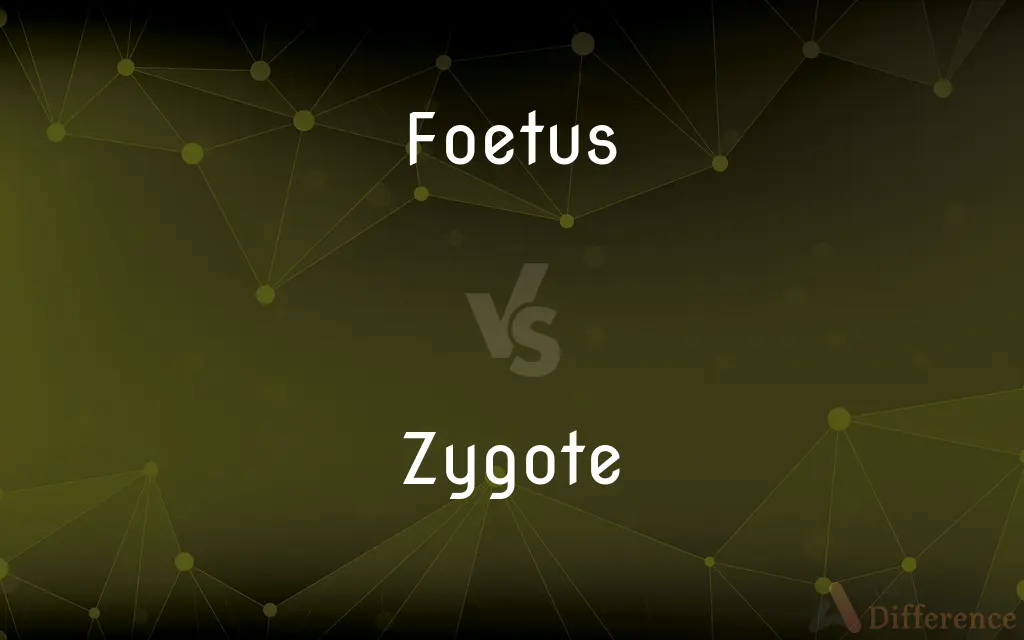Foetus vs. Zygote — What's the Difference?

Difference Between Foetus and Zygote
ADVERTISEMENT
Compare with Definitions
Foetus
Variant of fetus.
Zygote
A zygote (from Greek ζυγωτός zygōtos "joined" or "yoked", from ζυγοῦν zygoun "to join" or "to yoke") is a eukaryotic cell formed by a fertilization event between two gametes. The zygote's genome is a combination of the DNA in each gamete, and contains all of the genetic information necessary to form a new individual.
Foetus
Alternative spelling of fetus
Zygote
The cell formed by the union of two gametes, especially a fertilized ovum before cleavage.
Foetus
Same as Fetus.
ADVERTISEMENT
Zygote
The organism that develops from a zygote.
Foetus
An unborn or unhatched vertebrate in the later stages of development showing the main recognizable features of the mature animal
Zygote
A fertilized egg cell.
Zygote
The cell resulting from the union of an ovum and a spermatozoon (including the organism that develops from that cell)
Share Your Discovery

Previous Comparison
Guide vs. Inform
Next Comparison
Carabao vs. Buffalo













































